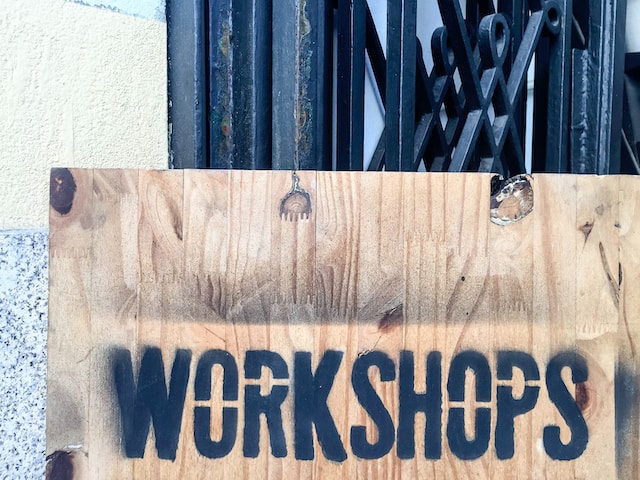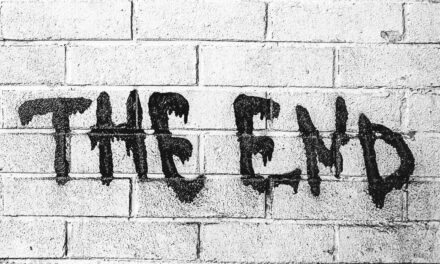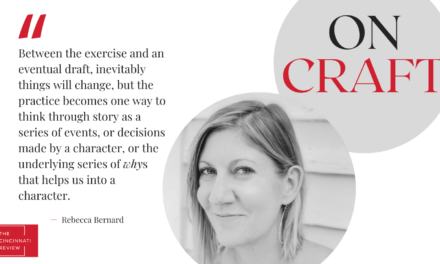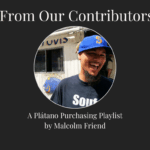
Everything is the same except composition and as the composition is different and always going to be different everything is not the same.
Gertrude Stein
Assistant Editor Rome Hernández Morgan: I am a dabbler. I love the exciting feeling of being a novice, learning something new from the ground up. I have this hope that someday all my dabbling will add up to something unexpected. Or that, at the end of a long, jumbled-up life, I will have something wise to say before I go.
Writing supports this habit—from the outside, writing can seem like a single, focused skill, but there are all sorts of opportunities for dabbling and distraction within this wide and varied craft. Although I primarily write poetry, this past spring I had the opportunity to take a fiction workshop with UC professor Michael Griffith and the brilliant first- and second-year fiction cohorts. Aside from the opportunity to dabble in fiction, I also found craft connections and skills that I can carry back with me to poetry.
The Lyric “I” and POV
Poetry is not fiction, of course. In Theory of the Lyric, Jonathan Culler writes about how pronouns function differently in the lyric poem than within fiction. Käte Hamburger argues that the “I” that leads the direction of the poem is neither the poet nor a fictional persona but rather a linguistic function. Moreover, although the lyric “I” may appear to narrate, poetry’s emphasis on line-level language makes the poem the event itself, rather than the recounting of an event—that is, not the mimesis that Aristotle marks in tragedy, comedy, and epic.
Yet although pronouns and their function differ, they still carry expectations. What does your speaker know? What can they know? John Gardner lays out these conventions under the label of “psychic distance,” similar to what is called “emotional distance” in poetry workshop. Fiction gets more specific, distinguishing between five different levels of psychic distance—that is, how close the reader feels to the world of the story, but also, on a writerly level, how much can be known, and when. For example, a great deal of distance might sound like, “It was summer in Cincinnati. Edmund stepped into Skyline Chili.” “Edmund secretly loved Skyline” draws us closer to the character’s psyche, and “the powdery cheese fluttering in the breeze of the AC, the strange and floral sweetness hidden below” allows us to directly experience Edmund’s feelings about his meal.
We might not question this in poetry as directly, or write toward it, but we can feel it when the lyric “I” and the psychic or emotional distance have strayed too far apart. If I were to write about dinner with my sister and then continue narrating her day after I leave, I know that will feel like a hiccup to the reader unless the poem signals we have entered the imagination or are looking back in time.
Expectations of Genre
One of the biggest differences between fiction and poetry workshops is the discussion of conventions. For example, Michael Griffith asked, “When you don’t provide what the reader wants, how do you compensate for that?” In some cases, this comment was directed at my plot-starved project—the compensation for the lack of story was lyric language (typical poet move, I know). But this question belies a larger fiction craft technique that we don’t discuss much within the craft of poetry, which is analysis and discussion of conventions. “What the reader wants” varies depending on conventions of the genre, the type of story, and the structure. A reader might not expect much plot in a lyric novel, though they certainly will expect some daring plot twists in a whodunnit. Conventions feel more slippery in discussions of poetry. The most confidently we poets speak of conventions is in the analysis of forms.
Forms have expectations that have become rigid over thousands of years—we still use conventions that can be traced back to the Epic of Gilgamesh in the third millennium BCE. Ballads tell stories, alternating rhythm between tetrameter and trimeter. Sonnets are love poems; they are Petrarchan or Shakespearian. When writing in a form, a poet’s materials are not only form and content but also readerly expectations. The expectation of a romantic relationship in a sonnet could be fulfilled by a more conceptual kind of love; a ballad might make its subject a story simply because of its container.
Apart from forms, I wonder what other conventions we might find in poetry that we can either align to or unsettle depending on rhetorical need. Conner Yeck and Rebecca Lindenberg offer great examples of how this can be done in poetry in the CR blog post “Trapdoors & Lit Fuses: How We End Our Poems.”
A Bird’s Eye View
The last, and most impressive (to me) characteristic I noticed about fiction writers is their ability to simply step back and look. After reading a story for workshop, I would come in with my thoughts on sentences, particularly their syntax and how well they transition into one another. My classmates made all kinds of connections that I simply could not see because they were able to step back and look at the story as a whole. To some extent, this is a matter of reading like a writer—I’ve read plenty of novels, but it was hard for me to grasp these larger patterns of structure until I saw my classmates modeling this analysis. It reminded me of the way that I have seen friends spreading their poetry manuscript-in-progress out on the floor to try and understand how one poem flows into another—a more literal example of distance, but still effective.
Identifying and thinking about structural patterns pairs well with the practice of reading widely. It can help a writer step further back and see patterns in a wider context, both historically and geographically. An additional benefit is a more varied and more flexible view of what is “good” writing.
I’m continuing to work on my fiction-y project from workshop, taking into account the strategies that I learned during the semester. But I think the biggest takeaway from my dabbling in fiction has been much less about composition and more about communication: how we talk about different genres mirrors and reinforces the genres’ qualities. So—everything is the same except the way we talk about it in workshop, so everything is not the same . . . right? I’ll check out a few more workshops and get back to you on it.










